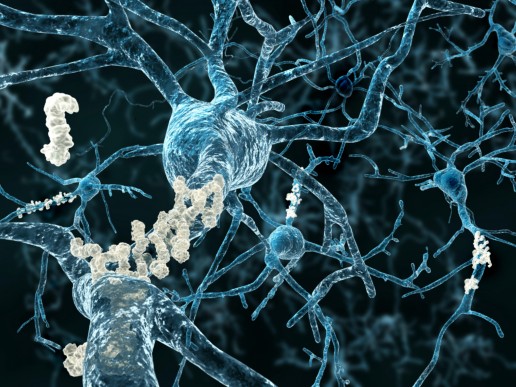Plaques can cause memory problems without causing dementia
Plaques, also known as Alzheimer proteins, can cause memory problems in people who have not been diagnosed with dementia, according to researchers at Maastricht UMC+ and the Alzheimer Centre Limburg. They recently conducted a study on the effect of plaques on brain function, the results of which were published this week in the scientific journal JAMA Psychiatry.
Amyloid plaques are proteins that accumulate in people with Alzheimer's disease, the leading cause of dementia. However, these plaques are also present in roughly one-third of people aged sixty and older, although the effect was never demonstrated. The Maastricht researchers therefore analysed several international studies to determine how plaques influence brain function.
Prediction
The researchers analysed data from more than 7,000 research participants at 53 international research centres. They found that the presence of plaques in people without dementia was often paired with lower scores on memory tests. They also found that it could take up to ten or fifteen years for people with plaques to develop low memory scores. 'This is compelling evidence to suggest that plaques in people without dementia could be an early sign of Alzheimer's disease,' says researcher Willemijn Jansen. 'While plaques aren't entirely innocent, people can function well for a long time despite their presence.'
Prevention strategy
These findings can help to develop new prevention strategies. 'At the moment, there is no medication to combat plaques,' says doctor and researcher Pieter Jelle Visser. 'If these medications were developed, they could be administered at an early stage, before dementia is diagnosed. This would help to prevent Alzheimer's-related dementia symptoms in the long term.' While several new medications for the removal of plaques are currently being tested on people with dementia, the results of these studies will only be revealed in a few years.

This pressrelease has been issued by the Maastricht University Medical Centre (MUMC+).
For more information, you can contact the communications department of the MUMC+.
Also read
-
Patients admitted to hospital due to a severe COVID-19 infection exhibit no evidence of brain damage caused by the disease. This is the conclusion of an extensive study led by Maastricht University.
-
Due to the Western lifestyle with a high fat diet combined with little exercise, more and more people in the Netherlands are overweight or even obese. This causes an increased risk of type II diabetes. What can be done about this besides a healthier lifestyle? The answer comes from an unexpected...
-
Survivors of colon cancer often have symptoms associated with the cancer or treatment for years after treatment, such as fatigue and tingling in fingers and feet. This has a great impact on the perceived quality of life. Whereas current lifestyle advice is mainly aimed at prevention of (colon)...


